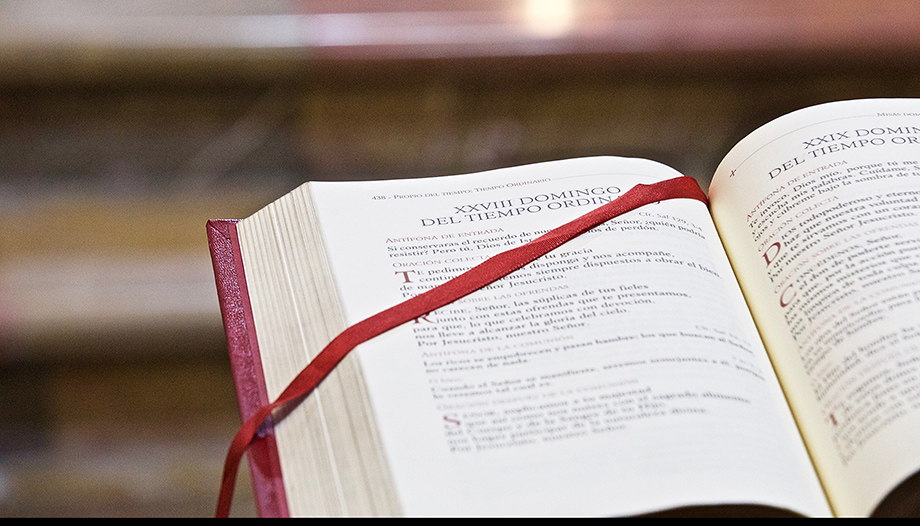We are rightly concerned about the environment and we see more and more clearly how wrong pollution is. Not only is it selfish, but it also damages this beautiful planet that God has given us.
But if the effect of inner thoughts could be visibly seen, we would be very careful about what we think, because they are like spiritual pollution. They pollute our spiritual environment, our mind and our community.
Jesus teaches us about this in today's Gospel, warning us against a life of faith based merely on externals. This is a great danger that religious believers especially can face.
The ancient Jews were scrupulous about ritual cleanliness. They were not so concerned with purity of soul. Some Catholics today may be very rigorous with liturgical prescriptions, but they look down on others with pride, just as the Pharisee in the parable looked down on the sinful tax collector.
Our Lord lists a series of sins that arise from the heart: "For from within, out of the heart of man, proceed evil thoughts, fornications, thefts, murders, adulteries, covetousness, malice, frauds, wantonness, envy, slander, pride, frivolity. All these evils come from within and make a man impure".
Based on the teachings of Christ, the Church distinguishes between internal and external sins. The latter are actions that can be seen or heard, but internal sins are simply thoughts. We think them, but no one sees them except God, who will judge us for our every thought (cf. Rom 2:16). When God gave us the 10 commandments, he also forbade internal sins, which are covered by the last two commandments: "Do not covet your neighbor's wife" and "Do not covet your neighbor's goods". These two commandments invite us to control our thoughts. Outward action is of no use if our heart is corrupt: in fact, it only leads to hypocrisy and thus to further condemnation.
The Church teaches that, in many respects, internal sins are more dangerous than external sins, because they are much easier to commit and because, if we do not control them, they soon lead to sinful deeds.
Therefore, our faith asks us to strive to control our thoughts and even our sight. If we look at impure things or look at others as mere bodies, using them for sexual pleasure in our thoughts, it is like a moral pollution. We are corrupting our heart. And the same is true if we allow ourselves to think negatively of others.
Homily on the readings of the 22nd Sunday in Ordinary Time (B)
Priest Luis Herrera Campo offers his nanomiliaA short one-minute reflection for these Sunday readings.









